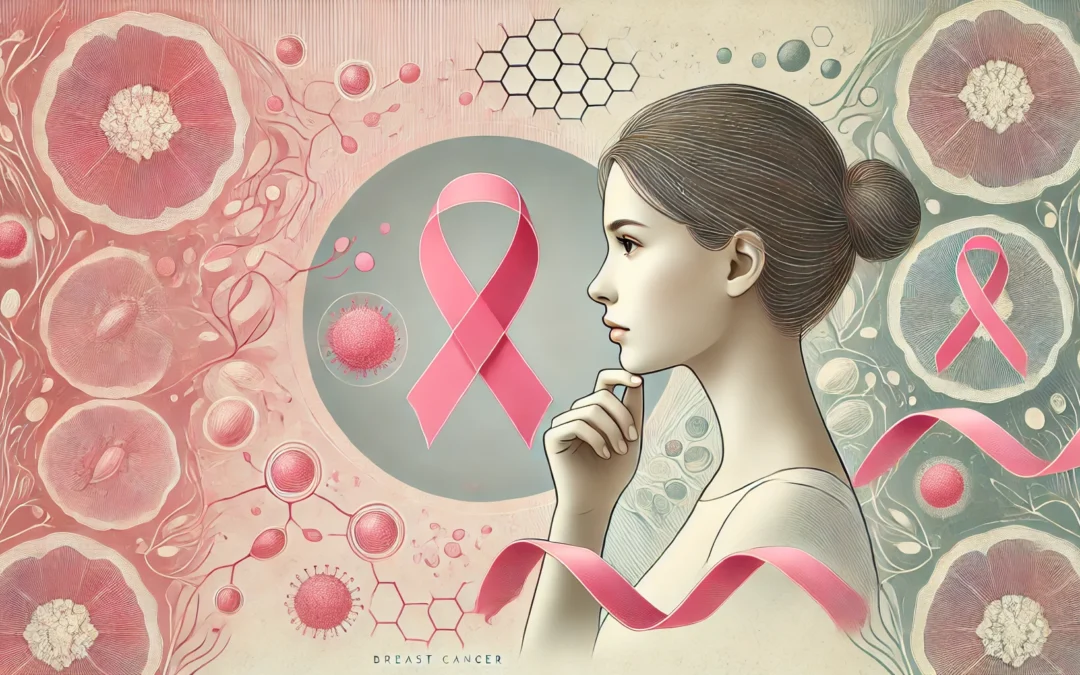Breast cancer, historically considered a disease affecting older women, is increasingly being diagnosed in young girls and women worldwide. This alarming trend raises questions about the underlying causes and emphasizes the need for awareness and proactive measures.
Changing Patterns and Alarming Statistics
According to recent studies, the incidence of breast cancer in young women under 40 has risen significantly over the past few decades. Although the overall risk remains lower in younger women compared to older women, the aggressive nature of breast cancer in younger patients is particularly concerning. Understanding why this shift is occurring is crucial to reversing the trend.
Key Factors Contributing to the Increase
Lifestyle Changes
- Diet and Nutrition: The modern diet, often high in processed foods, unhealthy fats, and sugar, has been linked to increased risks of cancer. Obesity, which is a significant risk factor for breast cancer, is also on the rise among young populations.
- Physical Inactivity: Sedentary lifestyles have become more common due to technological advancements and desk-based jobs, contributing to health issues that can lead to cancer.
Environmental Exposures
- Pollution and Toxins: Exposure to harmful chemicals in the environment, including endocrine disruptors found in plastics, cosmetics, and pesticides, can interfere with hormonal balance, increasing the risk of breast cancer.
- Radiation Exposure: Frequent exposure to medical imaging and radiation can elevate cancer risk, particularly if exposure occurs during developmental years.
Genetic and Biological Factors
- Family History: Women with a family history of breast cancer or genetic mutations such as BRCA1 and BRCA2 are at higher risk. Early genetic testing and counseling can help identify and manage these risks.
- Hormonal Changes: Early onset of menstruation, late pregnancies, or not having children can increase lifetime exposure to estrogen, a hormone linked to breast cancer development.
Stress and Mental Health
- Chronic stress and mental health challenges have been suggested as indirect factors contributing to cancer by weakening the immune system and promoting inflammation in the body.
Delayed Diagnosis
- Many young women do not consider themselves at risk and may ignore symptoms or delay medical consultations, leading to late-stage diagnoses when the disease is harder to treat.
The Role of Awareness and Prevention
Early Detection
- Self-examinations and regular screenings are vital. Young women should be educated on how to perform breast self-exams and recognize early warning signs such as lumps, changes in size, or skin texture.
Healthy Lifestyle Choices
- Maintaining a balanced diet, staying physically active, and avoiding excessive alcohol and tobacco use can reduce cancer risk.
Reducing Environmental Risks
- Limiting exposure to harmful chemicals, using organic or natural products, and minimizing radiation exposure are practical preventive measures.
Mental Health Support
- Encouraging stress management techniques such as mindfulness, yoga, and therapy can play a supportive role in overall health.
Advocacy and Education
- Organizations and campaigns must continue to spread awareness about breast cancer in younger demographics. Schools, workplaces, and social media can be powerful platforms for education.

